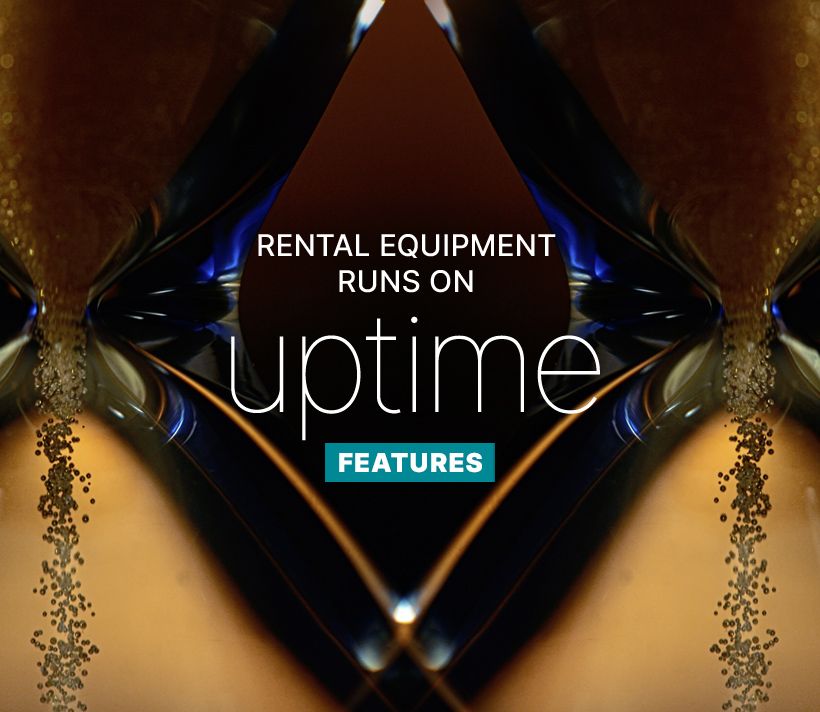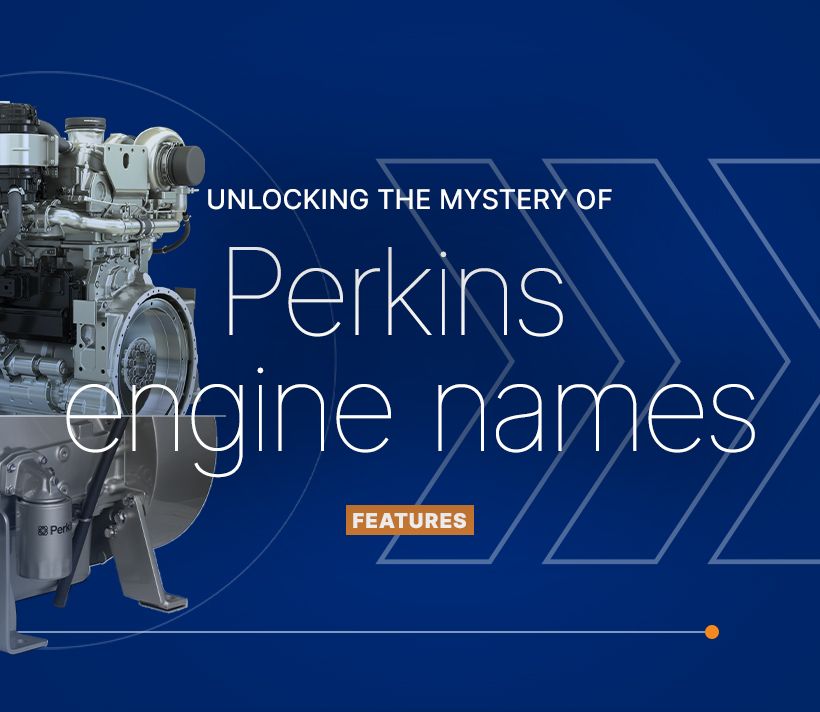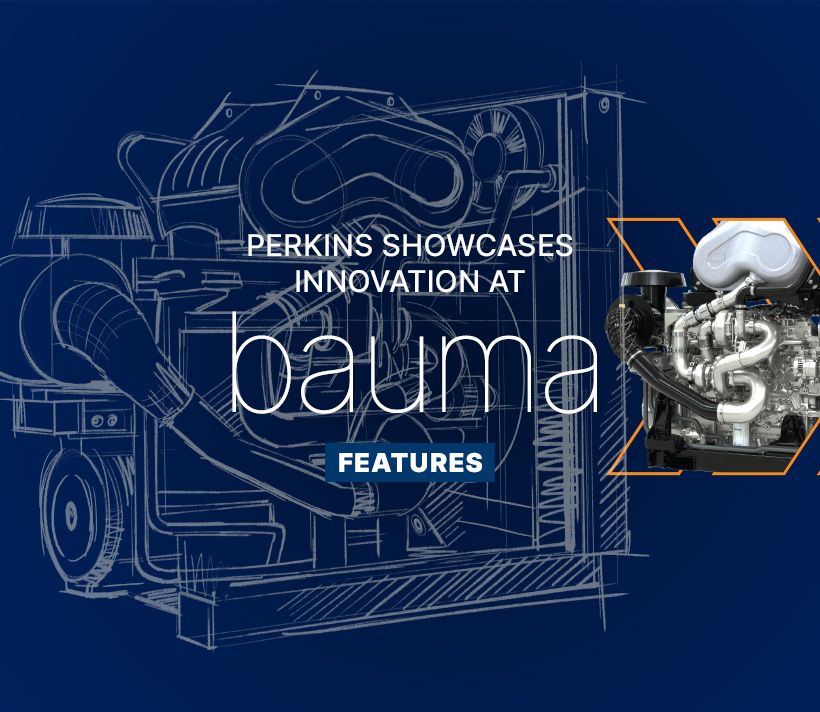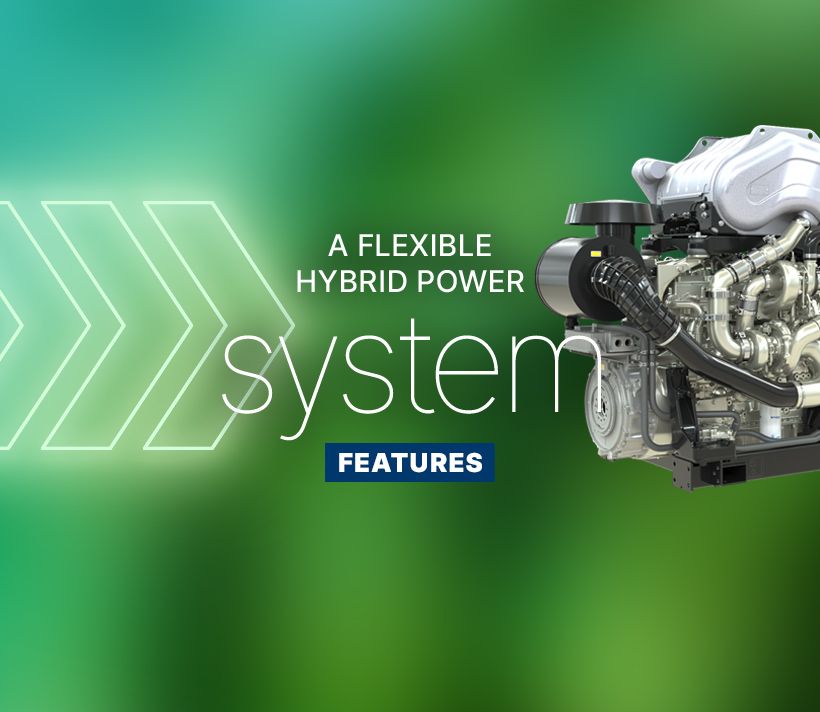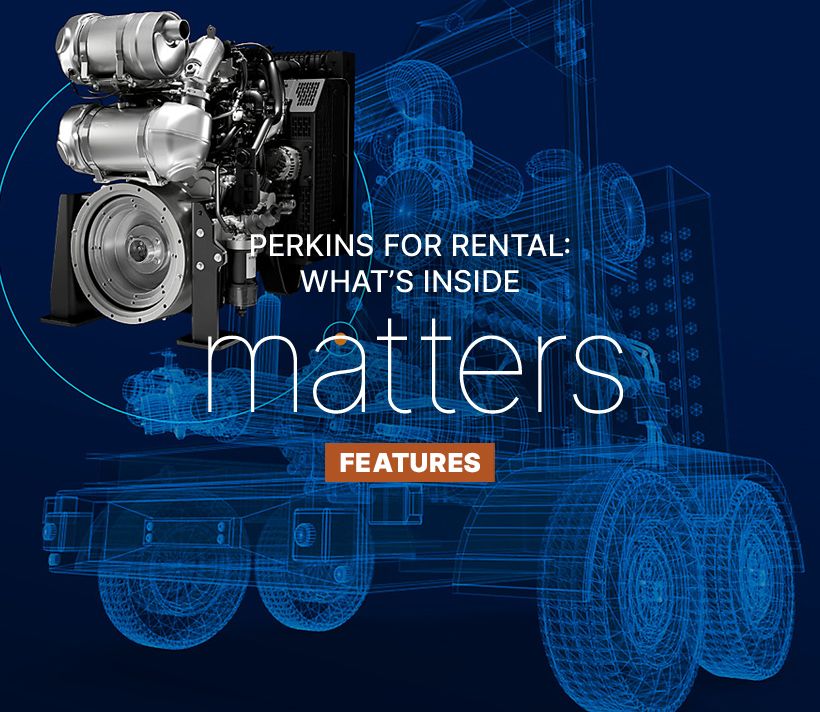Corey Berry is a long-time rental industry professional who is now the global rental sales and marketing manager for Perkins. He was a key participant in the design and implementation of the Perkins Rental Support Programme that has been adopted in some form by virtually every significant rental business in the world.
“The Perkins Rental Support Programme is a direct response to the changing nature of diesel engine technology to meet global emission standards,” Corey explained. “What once were easily understood and repaired mechanical engines are now sophisticated high-tech products. Electronic fuel systems, multiple aftertreatment technologies and all the other changes required to meet emission standards require new diagnostic tools and techniques to maintain and repair.
“The technological challenge of servicing and maintaining modern engines isn’t so novel anymore,” Corey noted, “but it turns out that the solution we created to meet it continues to deliver solid value for the rental industry, their customers and suppliers.”
The Perkins Rental Support Programme links everyone from the Perkins global organisation to the OEM who builds the equipment, the rental business that buys their products and even the end user who ultimately rents the equipment into a seamless network with a single goal — maximum uptime. Uptime translates directly to profitability in the rental industry and equipment that delivers maximum uptime tends to get reordered.
By giving rental businesses direct access to Perkins’ engineering expertise and the Perkins distributor and dealer network, the Perkins Rental Support Programme helps ensure that the reorder is for Perkins powered equipment. Everyone wins. OEM’s sell equipment, Perkins sells engines, Perkins’ distributors and dealers sell parts and service, rental businesses generate profits and end users get efficient, reliable equipment on the worksite.
“That sounds simple,” Corey added, “but it isn’t. There are three things the rental industry measures intensively and a successful product must pass all three tests.
“The first is ‘Return to ready” which is a measurement of how long it takes to turn a piece of returned equipment around in the shop before it’s placed back into the rental fleet. That took a big hit when the modern electronic engines first came on the scene because the technicians simply didn’t know how to work on them efficiently.
“The second is ‘Fleet maintenance cost’ which is self-explanatory. It also took a hit with the new engines for the same reason.
“The third is ‘Downtime’ which is a measure of how often a machine on rental is not available to the end user. That also took a hit because the field technicians were no more familiar with the new technologies than the technicians in the rental company shop.
“Anyone dealing with the rental industry who does not understand exactly what those three things mean within the industry and how they’re measured simply doesn’t know how to speak ‘rental’ and it shows immediately,” Corey continued. “There is no second chance to make a good first impression.”
Every industry has a ‘language’ of its own. Not a language like English, French, Chinese, German or Arabic — although Perkins people are fluent in all of those and many more — but words and concepts that have special meaning within the industry.
At Perkins, of course, we speak ‘engines’ and because many of our customers are Original Equipment Manufacturers (OEMs) we speak many dialects of ‘OEM’ as well. That doesn’t make us unique, any successful company must be conversant in the language of their primary customers.
What does make Perkins different, however, is the fact that we make a deliberate effort to learn and speak the language of our customer’s customer. Meeting the equipment rental industry’s need for tools to meet the challenge of new technology is an excellent example of how this works to the mutual advantage of everyone involved.
The initial challenge presented by the new engine technologies was compounded by the then existing lines of communication within the rental industry. Rental companies expected the OEMs to have the answers they needed to service the new engines, but the OEMs were not engine experts either and had to go back to the engine supplier to tap their expertise. That all took time, and time is money in the rental business.
“Who do I call for help right now” is the question the Perkins Rental Support Programme is designed to answer. It provides direct access to the Perkins distribution network for parts and service, Perkins’ training resources and Perkins’ factory expertise, when necessary, all via a dedicated rental portal, email address, rental help line and a dedicated rental support manager within the Perkins organisation.
“A field technician can access all of those resources from a smartphone,” Corey said, “and often get answers on the spot. If parts are needed, they can be ordered from and delivered by the nearest Perkins distributor, Perkins dealer or expedited from a Perkins regional logistics centre.
“That distributor and dealer relationship and access to specialised training are very important aspects of the Perkins Rental Support Programme, and they’re often overlooked. Because rental companies traditionally looked to the OEM for support, the local capabilities available within the Perkins network often weren’t exploited effectively.
“For example,” Corey noted, “technicians and drivers are key labour categories in the rental industry and both are in short supply but both are available within the Perkins distributor and dealer network. So, rather than the rental technician leaving the jobsite to pick up parts, the local Perkins facility often can deliver the required parts, special tools or even a factory trained technician to facilitate the repair while the rental company technician performs other services on the machine.”
The Perkins Rental Support Programme was rolled out in North America in 2019 and is now available globally. In fact, it has been so successful that programme representatives often accompany OEM sales teams on rental company visits and it’s used in some form by virtually every major rental company in the world.
Texas First RentalsTM is a good example. Fleet manager Taylor Graves recently said: “When demand is high, as it has been recently, finding parts can be a struggle and we had our share of challenges with most of our OEMs, but not Perkins. Between the breadth of their distributor/dealer network and the opening of their Regional Logistics Centre in Kentucky we were almost always able to get the parts we needed.
“For example,” he continued, “we lost several boom lift engines over a short period of time recently and needed some extraordinary support to get them replaced. The Perkins Rental Support Programme, the distributor network and their manufacturing operation responded and we had new engines to install within 10 business days. It’s hard to find that kind of support anywhere today, but Perkins always seems to come through.”
“The Perkins Rental Support Programme has been successful because it works,” Corey said. “We recently got a call from a major rental company on the U.S. Gulf coast who had five large air compressors out of service in critical applications at local refineries. Their technicians could not repair them, so the local Perkins distributor responded with on-site training, specialised tooling and expedited parts delivery to get all five machines up and running.
“That’s impressive in its own right, but what’s really impressive is that the response played a key part in the rental company’s decision on how to configure the more than 10,000 new machines they will order in the next two years. All of them will be Perkins powered.
“That’s a win for the rental company and their customers, a win for the OEMs who will supply the machines, a win for the Perkins distributors and dealers who will support them and a win for Perkins who will supply the engines. All because we spoke the language of rental and created a solution to a short-term challenge that turned out to be the key to a new model for customer service in the rental industry.”
Perkins’ collaboration with Trackunit, delivering real-time insights to customers, increasing productivity in the field.
Read moreFor industrial equipment rental, excellent technical support and parts availability is a necessity.
Read moreHave you ever looked at the name of a Perkins engine and wondered what all those numbers and letters actually mean? If so, you’re certainly not alone. But rest assured the nomenclature is anything but random.
Read morePower systems, services and technologies engineered for efficiency, productivity and fuel flexibility will be on show.
Read moreWhy stick to one fuel, when you can have a configurable power system?
Read morePerkins has announced a power uplift to the popular 3.6 litre variant.
Read moreWe chat to Corey Berry following the successful showings at American Rental Association (ARA) and United Rentals exhibitions.
Read moreWe headed to Malaga, Spain, to learn more and see the machine in action.
Read more



